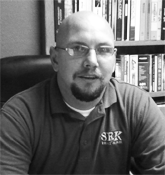 | Chris Cotter is the General Manager of SEK Heat & Air, Inc. in Pittsburg, KS. Chris has worked in the HVAC industry for 15 years and first joined SEK in 1996. SEK has been serving residential and commercial customers in Kansas, Missouri, and Oklahoma since 1994, providing sales and service of Conventional and Geo-thermal systems. Call Chris today to learn more about heating and cooling your home in a clean and efficient way at 620-215-3124, by e-mail at Info@SekHeatandAir.com, or visit www.SekHeatandAir.com. |
Heating & Air Conditioning
2011-11-21 12:14:27
Residential fall tune-ups, clean and checks
A: Last month, I explained that one of the best ways to keep your heating bills down is to assure that your heating system is running efficiently with regularly scheduled tune-ups. This month, I will discuss what is, or should be, involved in those maintenance checks.
According to Energystar.gov, maintaining your HVAC system results in significant savings. They suggest that a regular fall/winter maintenance check should include the following:
• Check thermostat responsiveness. A faulty thermostat may cause your system to run unnecessarily.
• Tighten all electrical connections. Measure voltage and current on motors. Faulty electrical connections reduce the life of major components as well as pose a safety hazard.
• Lubricate all moving parts.- Parts that lack lubrication cause friction in motors and increases the amount of electricity you use.
• Check and inspect the condensate drain- in your central air conditioner, furnace and/or heat pump (when in cooling mode). A plugged drain can cause water damage in the house and affect indoor humidity levels.
• Check controls of the system- to ensure proper and safe operation. Check the starting cycle of the equipment to assure the system starts, operates, and shuts off properly.
• Check all gas (or oil) connections, gas pressure, burner combustion and heat exchanger- Improperly operating gas (or oil) connections are a fire hazard and can contribute to health problems. A dirty burner or cracked heat exchanger causes improper burner operation. Either can cause the equipment to operate less safely and efficiently.
• Inspect, clean, or change air filters- Change your filter every month. Most problems with the system are due to a clogged and dirty filter. If your furnace flue is on your roof and you receive heavy or drifted snowfall make sure the flue is free of ice and snow. If your flue is iced up it can’t exhaust which will make your furnace shut down. Your contractor can show you how to do this. A dirty filter can increase energy costs and damage your equipment, leading to early failure.


